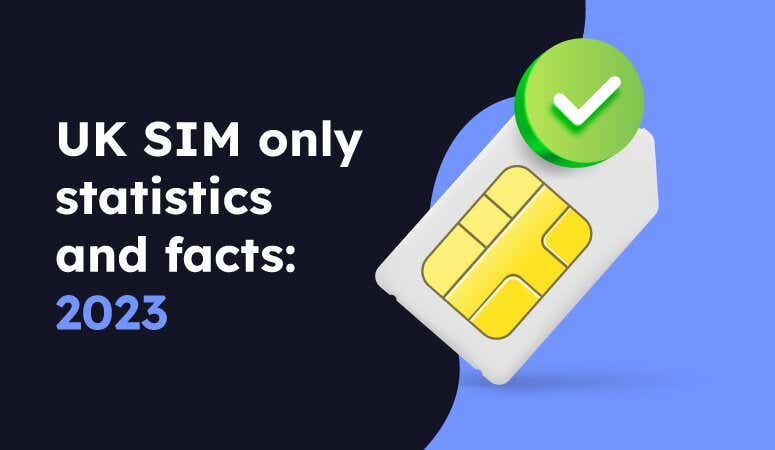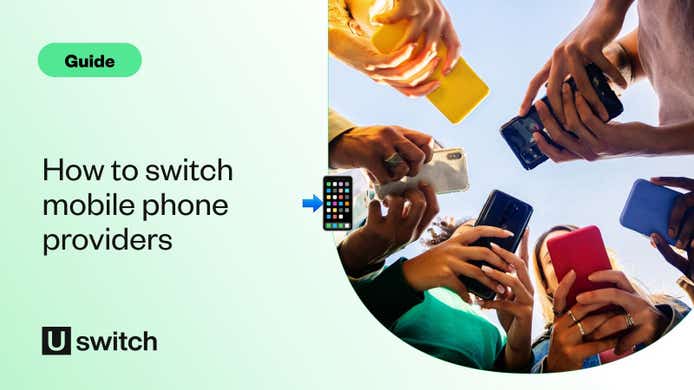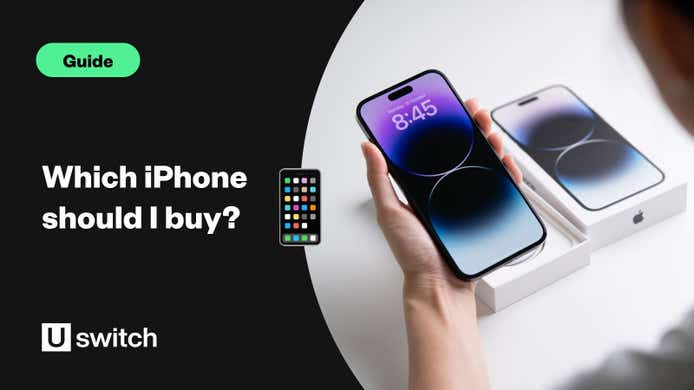We’ve taken an in-depth look at SIM only data to analyse trends and judge how SIM only usage in the UK has evolved in recent years. Keep reading to find facts and stats covering mobile use, network providers, and the different SIM only deals and contracts available.
Compare mobile contracts and SIM only deals
Browse our best contract deals for the latest handsets or save money with a cheap SIM only offer.
An overview of SIM only statistics in the UK
35% of residential phone customers choose a SIM only contract
12 months is the most common SIM only contract period
Average costs of SIM only plans have reduced over time by an average of 26.37%
Average daily mobile usage in the UK totals 4.14 hours per person
Ofcom recorded 170.12 billion call minutes and 36.44 billion text messages in 2022.
5G is available in 89.2% of all major towns and cities in the UK
Switching to SIM only can save you approximately £360* a year
SIM only take-up (Q2 - 2022)
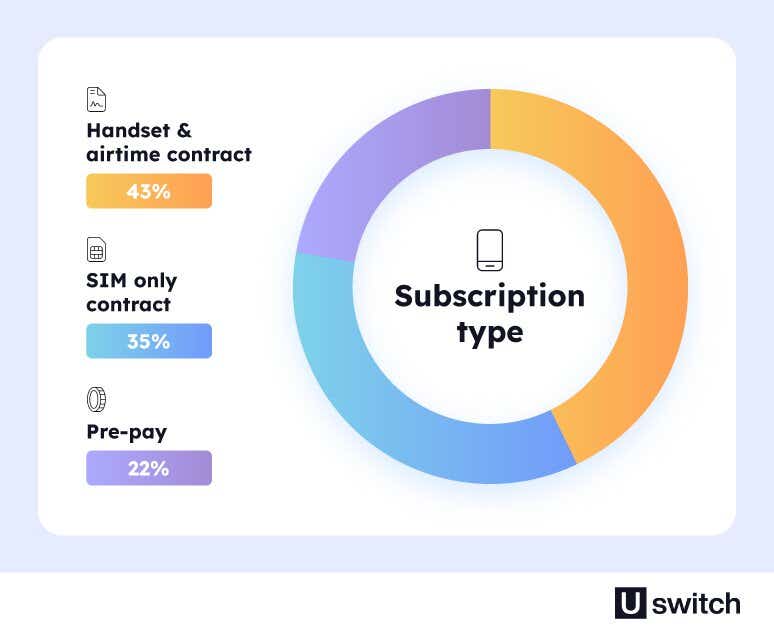
Over three-quarters, (78%) of residential mobile phone customers chose a pay monthly service at the end of the second quarter of 2022. Of these, the most common type of service was handset and airtime contract, which made up 43% of pay-monthly services. SIM only contracts made up 35%, with pre-pay (pay-as-you-go) services accounting for the remaining 22%.
Average SIM only contract period
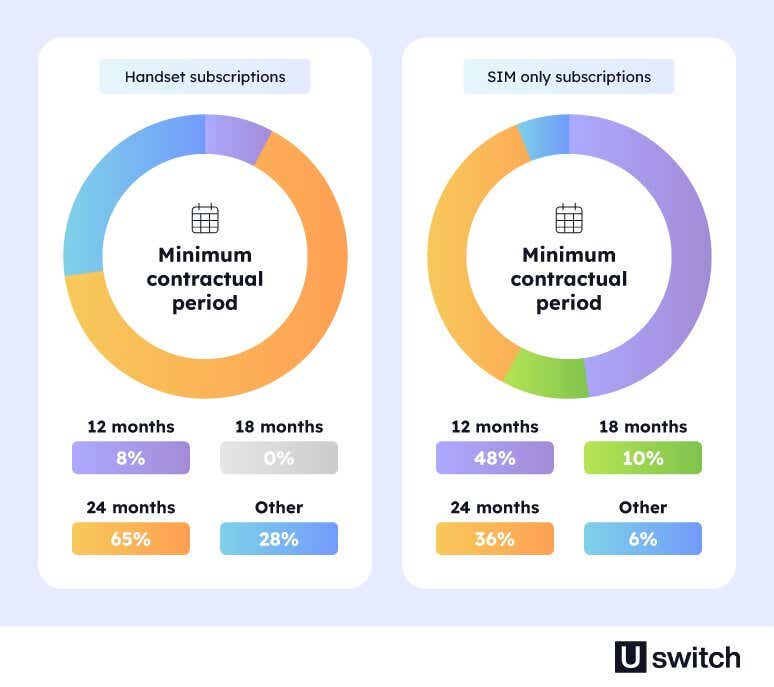
The most common contract period for handset plans is 24 months. Just under two-thirds (65%) of handset contracts span over 24 months, with just 8% lasting 12 months.
SIM only deals, on the other hand, are much more likely to be contracted over 12 months (48%) and less likely to last over two years (36%).
This means that purchasing a deal with a handset will more likely mean you will have to agree to a longer 24-month contract compared to the often shorter contracts associated with SIM only plans.
Average cost of a pay-monthly plan Vs average cost of a SIM only plan
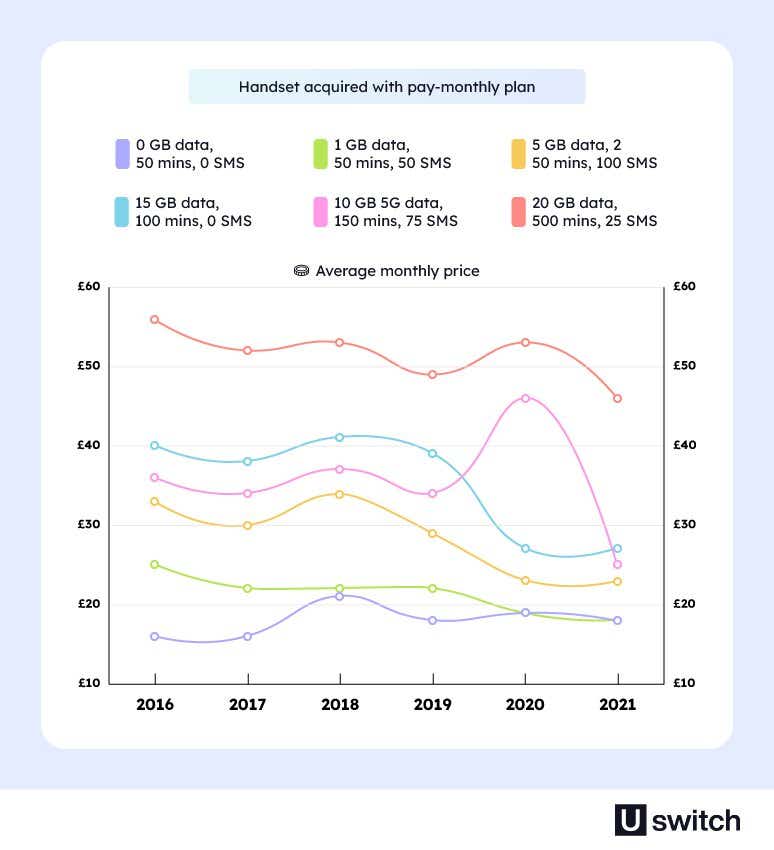
The average cost of a handset pay monthly plan has decreased over time. In 2016, the average monthly price for a SIM and handset with 15GB of data and 100 minutes was £40. Now it costs just £27 - a £13 reduction over the last six years.
Only the lowest level of deals, handset plans with just 50 minutes, have increased in price since 2016. A handset with a 50-minute plan would set you back £18 today, whereas in 2016 this was £16.
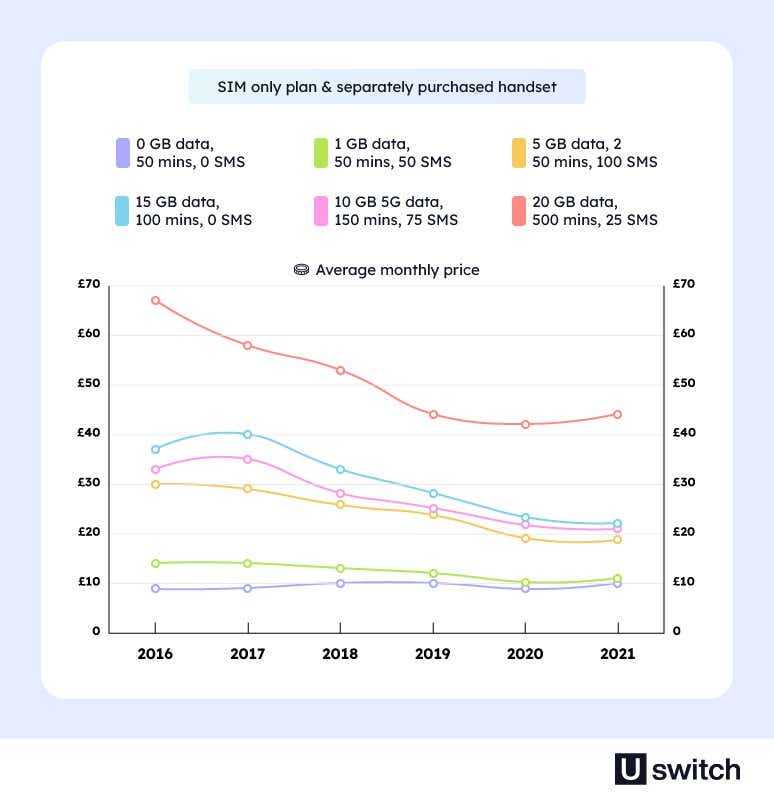
The same is true for SIM only deals without handsets. In 2016, the average cost for 15GB of data and 100 minutes was £37 per month. As of 2022, the average cost for that deal has dropped by £15 down to just £22 per month. Similarly to handset plans, it is only the lowest 50-minute SIM only deal which has increased in price since 2016, going from £9 to £10 over six years. The average reduction in price across the 6 plans was 26.37%.
Demographics of SIM only customers
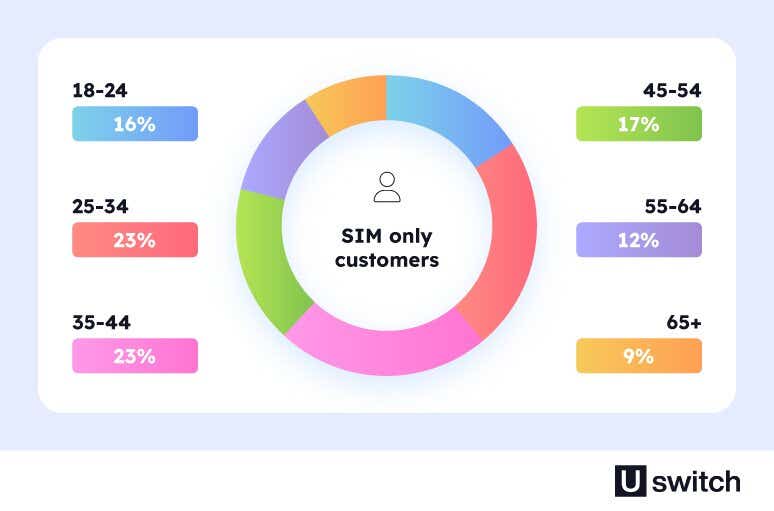
According to internal data from Uswitch.com, consumers aged between 25 and 44 are most likely to use SIM only contracts, making up 46% of all SIM only customers. People over the age of 65 are least likely to be SIM only subscribers, making up only 9% of users.
The average cost of a phone bundle
Mobile packages are increasingly generous, so much so that most people don’t end up paying any additional costs outside of their agreed contract or plan.
This “out-of-bundle” spending accounts for just a fraction of overall mobile spending, as little as £0.98 for those on SIM only plans.
Those who spend the most on services outside of their agreed bundle are those with a separate handset & service contract, at £2.32 (compared to £17.65 in-bundle).
| Contract type | Out-of-bundle | In-bundle | Total |
|---|---|---|---|
| Pre-pay | £1.62 | £4.21 | £5.83 |
| All pay-monthly | £1.21 | £20.12 | £21.33 |
| Single handset & service contract | £0.74 | £25.62 | £26.36 |
| Separate handset & service contract | £2.32 | £17.65 | £19.97 |
| SIM only contracts | £0.98 | £12.53 | £13.51 |
Average mobile cost by in/out of contract
On average, those who aren’t on a mobile contract pay less than those who are in-contract. This difference is least noticeable when it comes to SIM only customers, who pay an average of £13.49 when out-of-contract and £15.43 when in-contract.
However, those on other contract types pay considerably more when in-contract. For example, post-pay customers (those on a contract) pay two-thirds more when in-contract.
| Contract type | Out-of-contract | In-contract |
|---|---|---|
| All post-pay customers (contract) | £16.66 | £27.67 |
| Handset & airtime contract | £19.90 | £34.67 |
| SIM only contracts | £13.49 | £15.43 |
Cost per GB of mobile data
As of June 2022, Ofcom reported that the most common phone tariffs were deals providing between 10 and 100 GB, which they calculated to charge users around £0.38 per GB.
The second most common deal was between 1 and 10 GB charged a much higher rate of £2.29 per GB. The cheapest cost per GB came with the monthly plans offering more than 100 GB, where the cost per GB came in at just £0.16.
| Data allowance | Proportion of tariffs | Average cost per GB |
|---|---|---|
| ≤1 GB | 8% | £16.39 |
| >1 GB and ≤10 GB | 30% | £2.29 |
| >10 GB and ≤100 GB | 51% | £0.38 |
| >100 GB | 12% | £0.16 |
Top-selling mobile phones of the last five years
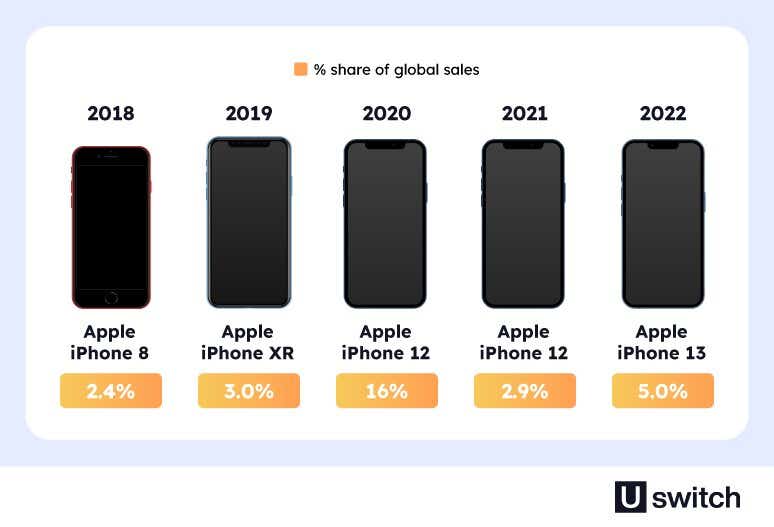
Of course, you need a mobile phone to go with a SIM only deal – whether that's a phone you already own from a previous contract or a new one you’ve bought outright. But which mobile phones have been the most popular over the last five years?
Apple has dominated the worldwide handset-sales leaderboards over the last five years, producing eight of the ten best-selling phones of 2022. In 2021, Apple produced seven of the ten top-selling phones and in 2019, they produced six of the ten top-selling phones.
The best-selling phone in the world in 2022 was the Apple iPhone 13, which on its own made up for a massive 5% of global mobile phone sales. The Apple iPhone 13 also saw 4.5 million Google searches in 2022, providing further evidence for its popularity. The Samsung Galaxy A13 was Samsung’s only entry into the top 5 for 2022, securing 1.5% of global sales.
The Apple iPhone 13 Pro Max and Apple iPhone 14 Pro Max accounted for a further 2.6% and 1.7% of global mobile phone sales respectively, meaning that Apple’s three top-selling handsets made up an impressive 9.3% of all mobile phones sold during 2022.
Despite only securing two models in the 2020 top-selling phones leaderboard, this was perhaps Apple’s most successful year. The Apple iPhone 12 accounted for a staggering 16% of all mobile phones sold worldwide, with the Apple iPhone 12 Pro accounting for a further 8%. This means that Apple, with only two models, made up almost a quarter of all mobile phone sales across 2020 (24%).
Samsung’s most successful year in the leaderboards was 2019 when the company secured two models in the top 5 list, the Samsung Galaxy A50 and Samsung Galaxy A10 models, each of which accounted for 1.8% and 1.7% of global sales respectively.
Top selling phones mobiles of the last five years
| Rank | Make of mobile | % share of global sales |
|---|---|---|
| 2022 | ||
| 1st | Apple iPhone 13 | 5 |
| 2nd | Apple iPhone 13 Pro Max | 2.6 |
| 3rd | Apple iPhone 14 Pro Max | 1.7 |
| 4th | Samsung Galaxy A13 | 1.6 |
| 4th | Apple iPhone 13 Pro | 1.6 |
| 2021 | ||
| 1st | Apple iPhone 12 | 2.9 |
| 2nd | Apple iPhone 12 Pro Max | 2.2 |
| 3rd | Apple iPhone 13 | 2.1 |
| 3rd | Apple iPhone 12 Pro | 2.1 |
| 5th | Apple iPhone 11 | 2 |
| 2020 | ||
| 1st | Apple iPhone 12 | 16 |
| 2nd | Apple iPhone 12 Pro | 8 |
| 3rd | Samsung Galaxy Note 20 Ultra 5G | 4 |
| 4th | Huawei Nova 7 5G | 3 |
| 5th | Huawei P40 5G | 3 |
| 2019 | ||
| 1st | Apple iPhone XR | 3 |
| 2nd | Apple iPhone 11 | 2.1 |
| 3rd | Samsung Galaxy A50 | 1.8 |
| 4th | Samsung Galaxy A10 | 1.7 |
| 5th | Oppo A5 | 1.3 |
| 2018 | ||
| 1st | Apple iPhone 8 | 2.4 |
| 1st | Samsung Galaxy S9 Plus | 2.4 |
| 3rd | Apple iPhone X | 2.3 |
| 4th | Xiaomi Redmi 5A | 2.2 |
| 5th | Apple iPhone 8 Plus | 2.1 |
Mobile vendor market share in the UK
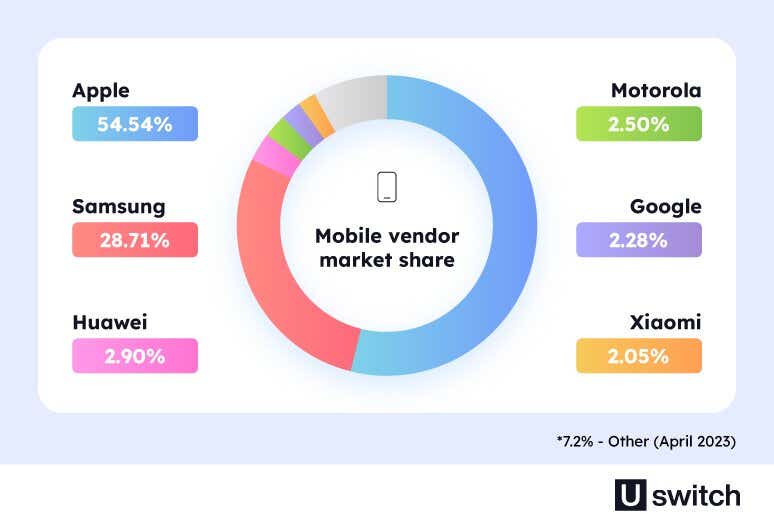
As of April 2023, Apple holds the largest market share in the mobile vendor market in the UK. Apple has over half of the market share (54.54%), with its closest rival, Samsung, taking up a significantly lower 28.71% of the market.
Apple and Samsung dominate the mobile phone market in the UK. Combined, they hold 83.25% of the market share, leaving their competitors with single-digit shares. Huawei is the closest competitor, and they only hold 2.9% of the market, followed by Motorola with 2.5% and Google with 2.28%.
Number of smartphone users in the UK: 2019-2028
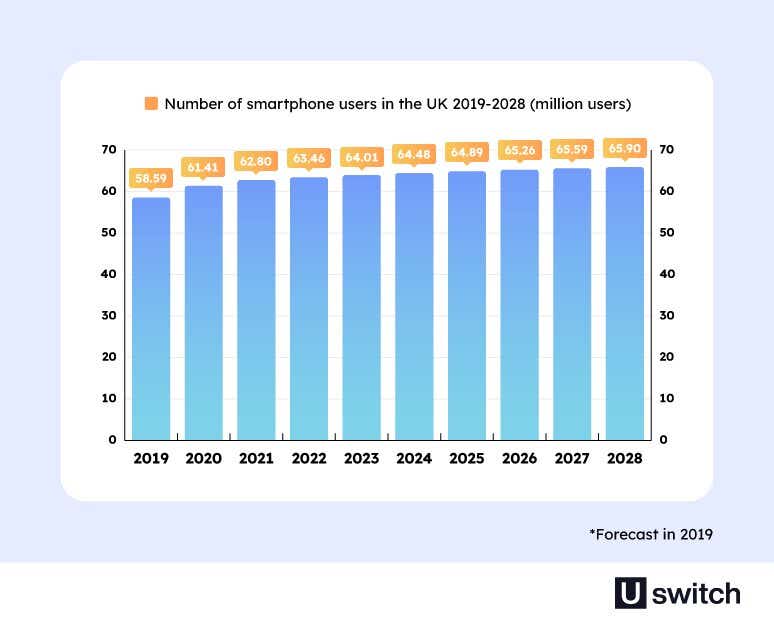
As of 2023, there are currently 64.01 million smartphone users. We can estimate that there are currently between 67 and 69 million people living in the UK, meaning the overwhelming majority of UK residents use smartphones. The number of smartphone users in the UK is projected to increase to 65.90 million by 2028.
With so many people in the UK owning a smartphone, it’s safe to predict that the SIM only market will only grow further.
Average daily mobile usage in the UK
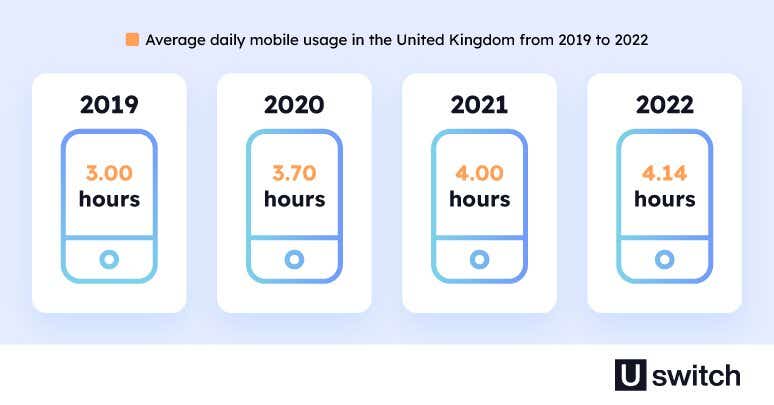
The average daily mobile usage in the UK has increased over the last four years. In 2019, users spent an average of 3 hours per day on their mobiles. Over 2022, this increased to 4.14 hours per day, with this number steadily increasing year on year.
With growing digitisation across industries, the rise in remote and home working, and the ever-increasing presence of social media, it is easy to see why we are becoming more and more reliant on mobile devices.
Similarly to the huge number of mobile phone owners, these stats show how demand for SIM only contracts is only set to grow.
Call and message volumes by call type: 2021-2022
From 2021 to 2022, calls and message volumes in the UK have decreased. In 2021, there were a total of 186.47 billion call minutes recorded by Ofcom. This number reduced by over 15 billion to 170.12 billion by 2022. SMD and MMS messages also fell by a few billion, reducing from 40.68 billion in 2021 to 36.44 billion in 2022.
While there are many factors to consider, this reduction in calls and texts is likely a result of the easing of lockdown restrictions following the pandemic. During the lockdown, it is likely that mobile networks saw an increased demand for calls and texts as people relied on these to communicate and socialise while they were in isolation.
Call and message volumes by call type (billions of minutes/billions of messages/PB)
| Year | All calls | UK fixed calls | On-Net mobile calls | Off-Net mobile calls | Int'l calls | Calls when roaming | Other Calls | SMS & MMS Message | Data |
|---|---|---|---|---|---|---|---|---|---|
| 2021 | 186.47 | 39.88 | 54.19 | 82.59 | 2.27 | 1.52 | 6.03 | 40.86 | 5751 |
| 2022 | 170.12 | 35.05 | 49.93 | 75.91 | 1.76 | 1.8 | 5.66 | 36.44 | 7268 |
5G availability in the UK
The 5th generation of mobile networks has been available since 2019 and has seen rapid uptake across the UK. As of today, 5G is available in 89.2% of all major towns and cities in the UK. EE, BT Mobile and CMLink all provide 5G networks in 107 of 120 major UK towns and cities, the most of any other operator.
Following are Three, iD Mobile and SMARTY, which offer 5G networks in 106 locations. These top six providers offer 5G networks in most major cities. Other operators have 5G networks in 88 or fewer major towns and cities in the UK.
| Rank | Network | 5G Launch Date | Major Towns and Cities with 5G* |
|---|---|---|---|
| 1 | EE | May 2019 | 107 |
| 1 | BT Mobile | October 2019 | 107 |
| 1 | CMLink | October 2021 | 107 |
| 4 | Three | February 2020 | 106 |
| 4 | iD Mobile | May 2021 | 106 |
| 4 | SMARTY | January 2022 | 106 |
| 7 | O2 | October 2019 | 88 |
| 7 | Sky Mobile | January 2020 | 88 |
| 7 | Tesco Mobile | March 2020 | 88 |
| 7 | giffgaff | October 2020 | 88 |
| 7 | Virgin Mobile | January 2021 | 88 |
| 7 | Lycamobile | December 2021 | 88 |
| 13 | Vodafone | July 2019 | 70 |
| 13 | VOXI | October 2019 | 70 |
| 13 | Asda Mobile | April 2021 | 70 |
| 13 | Lebara | August 2021 | 70 |
| 13 | Talkmobile | 2022 | 70 |
Reasons for choosing SIM only
SIM only plans are just that - they are contracts where you only pay for your SIM. There are various deals offering different calls, texts, and mobile data, over different periods. SIM only deals are great for those who already love their handsets and just want to renew their phone plans. Rather than purchasing a new phone or getting onto another handset-inclusive contract, you can pick up a SIM only deal and keep your current handset.
How good a SIM only deal is is often determined by its fit for you. We all use our phones differently, and some of us will want more or less data, calls, and texts. When considering your next SIM only deal, here are some benefits to think about.
You can choose any provider
SIM only deals mean you’ll never be tied to any single provider. Some deals can be as short as 1 or 2 months, after which you are free to switch if your provider doesn’t cover everything you need. We’ve ranked the best mobile network providers in the UK above, with EE, BT Mobile, and SMARTY as the front runners for customer satisfaction.
You can save money
SIM only deals can often be cheaper, especially in the long term, than purchasing contract agreements with handsets. This is because you’re not paying back the cost of this new smartphone and are only paying for the data and calls that you need.
If you’re happy with your current handset, switching to a SIM only deal is a great way to save money. And doing so can save you approximately £360* a year. SIM only deals have the benefit of being more flexible than other contract types, allowing you to choose from 30 days, 12 months, 18 months and 24 months. You can use your SIM in any handset, as long as it’s unlocked. Be sure to compare SIM only deals at Uswitch.com to find the best package for you.
You can keep your favourite handset
Many of us become attached to our phones, especially if it’s a model which still runs fine and suits our needs. Rather than buying a new phone with a new contract, simply get a SIM only deal and you can keep your much-loved handset. This also means there is no pressure to upgrade your phone - you can get any device you want whenever you want, as you needn’t bother to wait for your contract to expire before getting a new handset.
Methodology and sources
The following sources were used for this statistics page.
SIM only take-up (Q2 - 2022 page 43)
Average SIM only contract period (Q2 - 2022 page 44)
Average cost of a SIM only plan vs handset w/ pay monthly plan (July 2022 prices page 47)
Cost per GB of data (June 2022 page 49)
Average cost by in/out of bundle (page 52)
Average cost by in/out of contract & % who are in/out of contract (Q2 - 2022 page 54)
Demographics of SIM only customers (age, gender, income etc)
Top-selling phones of the last 5 years (2018-2022)
Mobile vendor market share in the United Kingdom (April 2023)
Calls volumes in minutes (page 4)
Number of smartphone users in the UK 2019-2028 (in million users)
Average daily mobile usage in the United Kingdom from 2019 to 2022 (hours)
Call and message volumes by call type (billions of minutes/billions of messages/PB) (page 14)
Notes to editors:
*£360 is our calculated savings figure from September 2023, which details the potential amount a customer could save per year by keeping their handset and switching to a SIM Only deal on Uswitch. See more here: Uswitch savings.


